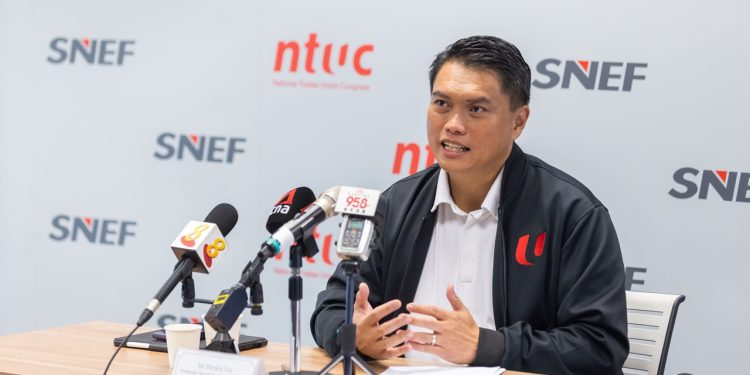If there was something that COVID-19 has highlighted, workers want more assurances during times of crises.
It is an area that NTUC has said it hopes more can be done – particularly for the PME group.
During a recent NTUC-Singapore National Employers Federation (SNEF) PME Taskforce update, NTUC Assistant Secretary-General Patrick Tay reiterated his call for the Government to strengthen its unemployment support for involuntarily displaced PMEs.
Unemployment or income support was one of the nine recommendations by the taskforce that the Government has yet to accept since they were proposed in October 2021.
Mr Tay said: “The Government has not responded and come up with a decision yet, but we [the taskforce] feel strongly about it.”
Singapore has been known for many things but being a welfare state has never been one of them.
We take a look at why NTUC has decided to push for income support for those involuntarily displaced and how the congress feels it should be implemented.
The Sandwich Class
One of the reasons why NTUC feels strongly about the provision of unemployment support is that many PMEs belong to the sandwich class.
In Singapore, the sandwich class can be referred to as those who can neither afford the luxuries of the upper class nor are they entitled to the welfare benefits of the lower-income group.
Loosely characterised as having a household income of around $10,000, this social class also often bears the additional strain of looking after ageing parents on top of their family nucleus.
And with today’s geopolitical uncertainties adding to Singapore’s increased cost of living, NTUC sees it fit for the Government to provide those who have been unwillingly displaced with some interim financial support to tide them through the difficult period.
The Keyword is Interim
At the PME Taskforce’s update, Mr Tay made it clear that the support that NTUC is proposing is an interim one while workers seek to get back on their feet.
He said: “We’re not looking towards a welfare situation but interim support for workers to tide them over.
“For example, we know that many mature PMEs take slightly longer to return to work or be rehired. So we felt that a short-term set of unemployment support will be useful for them, and it should also be tied in with active labour market policies.”
Active Labour Market Policy
The labour market policy was another crucial aspect of what the NTUC-SNEF Taskforce was proposing.
An active labour market policy can be described as a measure to help individuals enter the job market or prevent an individual already working from losing their job.
“In many parts of the world, including the UK, unemployment support is always tied with active labour market policy. This means that, yes, we will give you the support. Still, the unemployed person or person in transition should take proactive steps towards getting gainful employment or even upskilling,” said Mr Tay.
He cited further examples of proactive steps workers should undertake, such as career counselling or training to segue into new industries or job opportunities.
“The income support should act as an add-on to existing support schemes so that those undergoing training and upskilling have time to do so and need not worry about daily out-of-pocket expenses,” he added.
While the Ministry of Manpower reviews the viability of the taskforce’s unemployment support recommendation, NTUC says it will continue to push for its acceptance.
“From the Labour Movement point of view, we thank the employers for being supportive of this recommendation.
“We will continue to lobby for this. You will hear us lobby for this,” said Mr Tay.

